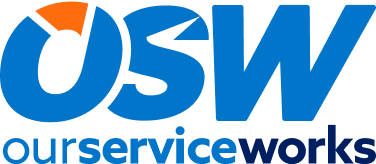There are several options you can utilize for managing your fulfillment function. You can handle the e-commerce fulfillment service by yourself (commonly referred to as “in house fulfillment”), utilize a drop shipping service, or outsource the entire fulfillment service to a third-party fulfillment company. Outsourcing is a popular choice since it makes your business agile and helps reduce expense and risk. With outsourced fulfillment, you can contract or expand your warehouse space depending on your business demands.
Drop Shipping
Drop shipping is ideally suited for a pure startup company that wants to minimize risks. Under a drop shipping model, the producer of the product, or supplier, handles the fulfillment and shipping of orders from their facility, usually on an order-by-order basis. In other words, when an order is placed for your product, the order information is routed to the drop shipper (supplier) who then ships that order directly to your customer.
With the drop shipping model, you aren’t required to purchase a bulk of product up front. Instead, the drop shipper simply charges you a price per unit for the product itself and for all the fulfillment and shipping related charges. With no up-front investment required for inventory, you can instead invest money in other areas of the business. Furthermore, the drop shipper handles all the fulfillment, so you don’t have to. You can sit back and let the manufacturer handle the entire fulfillment process. Drop shipping is especially useful for testing out products before a full-scale launch.
Alternatively, there are some downsides to using a drop shipper. First and foremost, drop shippers are usually experts in producing products, but aren’t necessarily the best at delivering high quality fulfillment and shipping services. Therefore, you may experience issues such as late shipments. Second, in exchange for the ability to purchase a product on a one-off basis, you will pay a much higher cost per unit for the product. For example, your product for a single unit of the product will be much higher than if you negotiated a lower price for a larger set of goods from the supplier (commonly referred to as “bulk pricing”).
Unfortunately, with drop shipping you’ll lack control over the fulfillment process, shipping, and handling of the products. Other disadvantages of drop shipping include lower profit margins, shorter lead times, and lack of bulk pricing.
Self-Fulfillment
In self-fulfillment, your business conducts the order fulfillment process through its own labor, assets, and facilities and without the assistance from a third-party fulfillment company. Whether conducted out of an apartment, home, garage, or full-fledged warehouse, in house fulfillment requires a space to store and fulfill orders, at least minimal inventory and shipping software to support operations, and labor to perform the necessary tasks. In cases of bootstrapping, oftentimes founders will do all of the shipping and fulfillment until they can afford to outsource logistics operations.
The self-fulfillment strategy is easy to implement, gives you control over the whole fulfillment process, and has lower startup costs (especially since you don’t necessarily have to pay yourself a wage). However, it has some major challenges and limitations.
The biggest problem with using an in-house fulfillment strategy is that it forces you to invest an enormous amount of time on fulfillment and shipping functions, rather than other potentially more important functions such as product design, sales, and marketing services. In addition, in house fulfillment carries with it the following potential problems:
- Entering a leased space and the risks and fixed costs associated with taking on a long-term lease.
- Managing warehouse and shipping staff
- Lacking the necessary knowledge to avoid fulfillment and logistics issues
Fulfillment Center
Outsourcing your operations to a fulfillment center is a great model that needs supply chain management. A third-party logistics manages various supply chain functions on your behalf, so that you can focus on your core business functions.
Outsourced fulfillment services include:
- Freight forwarding (managing incoming shipments from your supplier to the warehouse)
- Receiving product into the warehouse (counting it, verifying accuracy of quantities and quality of products, loading it into their online system and physically placing it in their warehouse in racks and bins)
- Inventory storage and management
- Pick and packing of orders
- Shipping orders
This model suits e-commerce retailers who do not have the resources to handle the inventory by themselves, or who would rather not deal with the rigors of the fulfillment process. It frees up time, resources and enables your staff to concentrate on other things such as business development and marketing. Furthermore, fulfillment centers will help you achieve cost savings by:
- Changing fixed leased costs into variable costs where you only pay for what you use
- Lower other fulfillment and shipping costs such as packaging and boxes, labor, and technology costs
Furthermore, you can benefit from the data insights, shipping network, value-added tools, and industry expertise of ecommerce fulfillment companies. Because fulfilling orders is the lifeblood of their business, they are experts at what they do. In short, it is like having an expert in-house fulfillment team but without the associated costs and headache of managing it yourself.
Partnering with the best e-commerce fulfillment companies has multiple advantages, including ease of scaling, increased buying power, and reduced operating costs while leveraging industry expertise.







